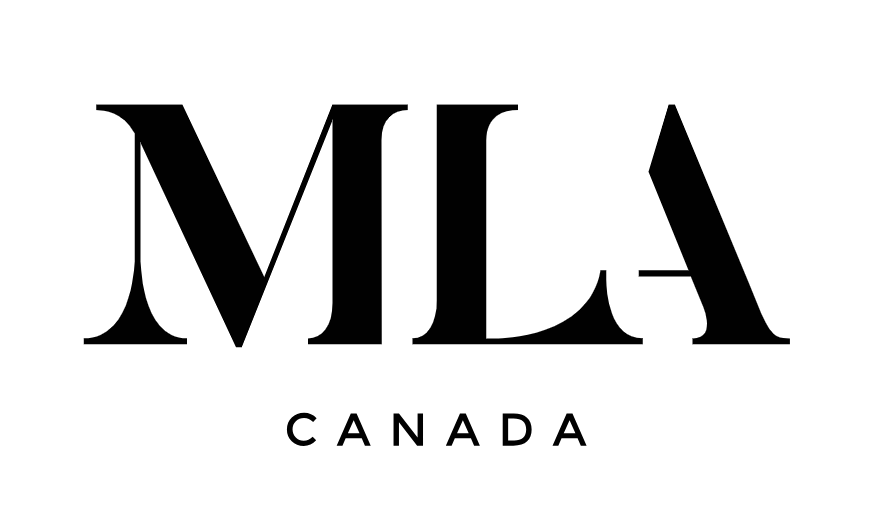Episode 454
Listen On: Apple Podcasts | Spotify
With the largest US-Canada bond yield spread in 70 years & unprecedented trade threats looming, Moody’s Analytics Director and Lead Canadian Economic Forecaster Brendan Lacerda sits down with Adam & Matt to unpack what Trump’s tariff threats mean for our market.
From Moody’s baseline 5% tariff forecast to worst-case scenarios of 25%, Lacerda explores how these economic headwinds and diverging interest rates could reshape Vancouver real estate in 2025.
Will the Bank of Canada’s projected rate cuts spark market momentum? What do outsized tariffs mean for our local real estate market? And with Canada and US economies heading in opposite directions, what does this rare economic divergence mean for all Canadians? Don’t miss this market update!
Guest Information

Brendan LaCerda
Brendan LaCerda is an associate director and senior economist with Moody’s Analytics. Brendan serves as the lead analyst for the Canadian economic forecast. His primary responsibilities also include the development and improvement of country forecast models. His research is primarily focused on international macroeconomics, healthcare and fiscal policy. Before joining Moody’s Analytics, Brendan worked as a senior economist with IHS Global Insight’s U.S. Macroeconomic Service. Brendan received his PhD in economics from the University of Virginia. He pursued his undergraduate education at the London School of Economics and the University of Notre Dame, where he graduated with a BA in economics and mathematics.
Episode Summary
Unlock Metro Vancouver Real Estate – Access SOLD PRICES and In-Depth Market Insights Now!
2025 Canadian Real Estate Outlook: Flat Market, Elevated Risk
As Canadian homebuyers and sellers brace for 2025, the latest economic forecast from Moody’s Analytics suggests a period of price stability rather than boom or bust. Guest expert Brendan LaCerda shares that housing prices across major markets, including Metro Vancouver, are expected to “wobble sideways,” showing little movement up or down.
Driving this stagnation are a few key forces:
- Interest Rates Are Set to Fall: The Bank of Canada is projected to cut its overnight rate to a neutral 2.5% by mid-2025. While this offers some mortgage relief, it’s unlikely to spur runaway demand.
- Strong Wage Growth Supports Demand: Despite low productivity, average wages in Canada have grown 4–5% year-over-year. This improves household purchasing power even in a softening economy.
- Immigration Shifts Could Cool the Rental Market: New federal policies on student visas and temporary residents will likely shrink the working-age population in 2025. This could impact rental prices more than homeownership trends.
- Supply Mix May Shift: Builders are likely to focus less on one-bedroom condos and more on single-family homes and larger apartments to meet evolving demand.
Bottom line: while Canada is unlikely to experience a housing crash in 2025, don’t expect rapid appreciation either.
Unlock Metro Vancouver Real Estate – Access SOLD PRICES and In-Depth Market Insights Now!
The Real Threat: US Tariffs and Trade Shocks
One of the most urgent risks to Canada’s economy in 2025 is the return of aggressive US trade policy. Moody’s has already baked in a 5% tariff on Canadian exports in its baseline model. In worse-case scenarios, tariffs could rise to 25%—pushing Canada into a recession.
Why does this matter?
- Canada Is Extremely Export-Dependent: Nearly 16% of Canada’s GDP comes from exports to the US. Tariffs on Canadian goods—especially oil, autos, and manufactured items—could have an outsized impact on economic growth.
- Retaliation May Not Be Worth It: According to LaCerda, retaliatory tariffs would likely hurt Canada more than the US, which imports a smaller share of goods relative to GDP.
- A Broader Trade War Could Crush Global Demand: If the US simultaneously targets China, Mexico, and Canada with tariffs, global trade flows could slow significantly—pulling Canada into a downturn even without direct retaliation.
Moody’s models show that if tariffs climb to 25%, a recession is highly likely. Even modest tariffs will weigh on consumer confidence and financial markets.
Unlock Metro Vancouver Real Estate – Access SOLD PRICES and In-Depth Market Insights Now!
Diverging Interest Rate Paths: Canada vs. US
In a rare move, Canadian and US monetary policies are moving in opposite directions—and the impact on currency and investment will be significant.
- US Interest Rates Are Likely to Stay Elevated: US markets are pricing in deficit-financed tax cuts and inflation from tariffs. As a result, the Federal Reserve may delay further cuts until late 2025.
- Bank of Canada Is Cutting: With inflation under control and growth weak, Canada is expected to cut rates to stimulate the economy. Moody’s expects the overnight rate to settle at 2.5%.
- Result? A Weaker Canadian Dollar: The CAD is forecasted to fall roughly 5% against the USD in the coming year. Further rate divergence could accelerate this drop, especially if Canada absorbs more of the tariff fallout.
This desynchronization will affect not only currency markets but also mortgage rates, investor returns, and homebuyer sentiment.
Unlock Metro Vancouver Real Estate – Access SOLD PRICES and In-Depth Market Insights Now!
Why Housing Affordability in Canada Is Still Out of Reach
LaCerda points out a long-standing issue: Canadian real estate—especially in markets like Vancouver—is fundamentally more expensive than most US cities, even adjusting for exchange rates.
Why?
- Urban Density: Canadians are more likely to live in major cities than Americans, putting upward pressure on urban housing prices.
- Regulatory Barriers: Municipal and provincial policies across Canada continue to slow down housing construction, limiting supply despite strong population growth.
- Construction Not Keeping Pace: Though builders are active, demand has outpaced supply for years. This has led to extreme price-to-income ratios in cities like Vancouver and Toronto.
A potential solution? Look south. LaCerda cites Austin, Texas as an example where increased housing supply brought down rents and improved affordability.
Unlock Metro Vancouver Real Estate – Access SOLD PRICES and In-Depth Market Insights Now!
Frequently Asked Questions:
What is the forecast for Canadian home prices in 2025?
- Moody’s expects home prices in Canada to remain largely flat through 2025. Lower interest rates and steady wage growth provide support, but trade uncertainty and weak productivity offset growth.
How could US tariffs affect the Canadian housing market?
- Higher US tariffs on Canadian exports could lead to a recession in Canada, weakening consumer confidence and real estate demand—especially in export-driven provinces like BC and Ontario.
Will interest rates in Canada drop in 2025?
- Yes. Moody’s baseline forecast expects the Bank of Canada to lower rates to 2.5% in 2025, helping to ease borrowing costs for buyers.
Is the Canadian dollar expected to weaken?
- Yes. The loonie is expected to lose about 5% of its value compared to the US dollar due to diverging monetary policy and trade risks.
Why is Vancouver real estate so expensive?
- Vancouver’s high housing costs stem from strong urban demand, limited housing supply, and restrictive zoning regulations that prevent rapid development.
Last updated April 17 2025 by Adam Scalena PREC.
Unlock Metro Vancouver Real Estate – Access SOLD PRICES and In-Depth Market Insights Now!
Episode Host

Adam Scalena
Adam is a full-service realtor, specializing in Vancouver’s best areas. His systematic approach to real estate and dedication to his clients has consistently placed him within the top 10% of realtors operating within Greater Vancouver.

Matt Scalena
Matt is real estate obsessed and considers himself a lifelong student of the Vancouver real estate market. As a co-manager of the Scalena Real Estate team, Matt prides himself on expertly advising buyers and sellers on all aspects of the fast-paced, dynamic Vancouver real estate market. He is present at every stage of the process, from that first phone call or email right through to when keys are exchanged between sellers and buyers.








